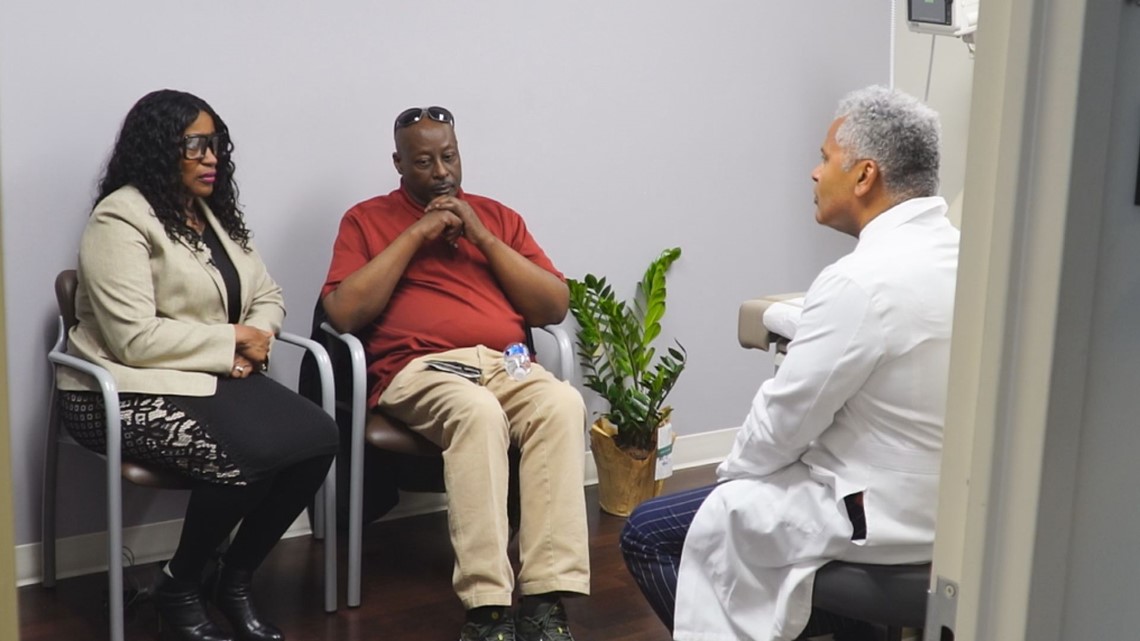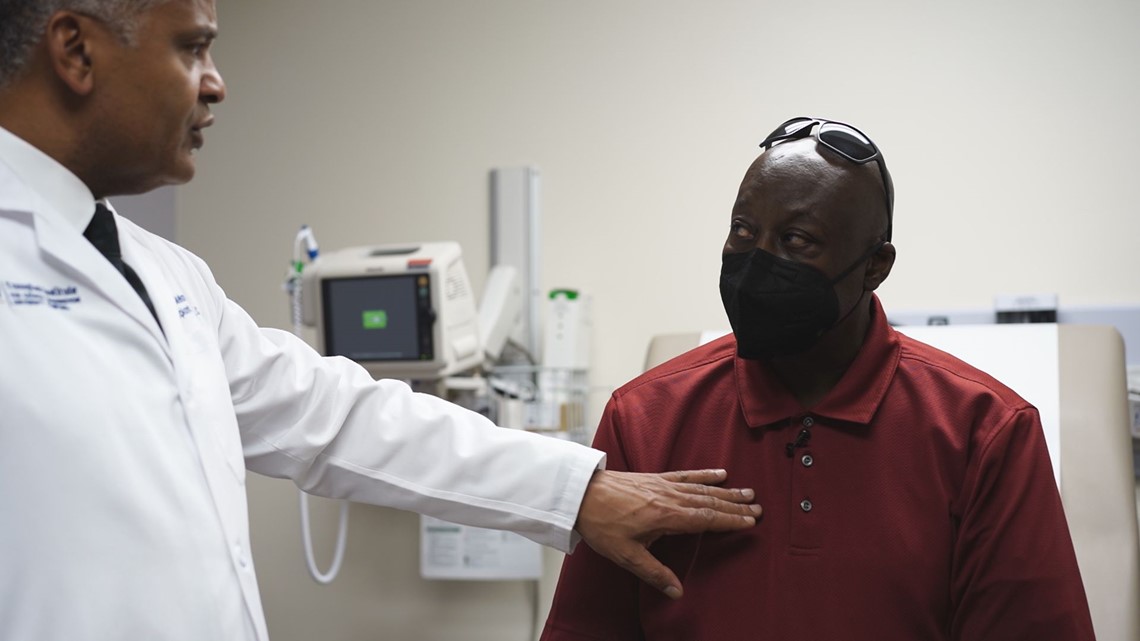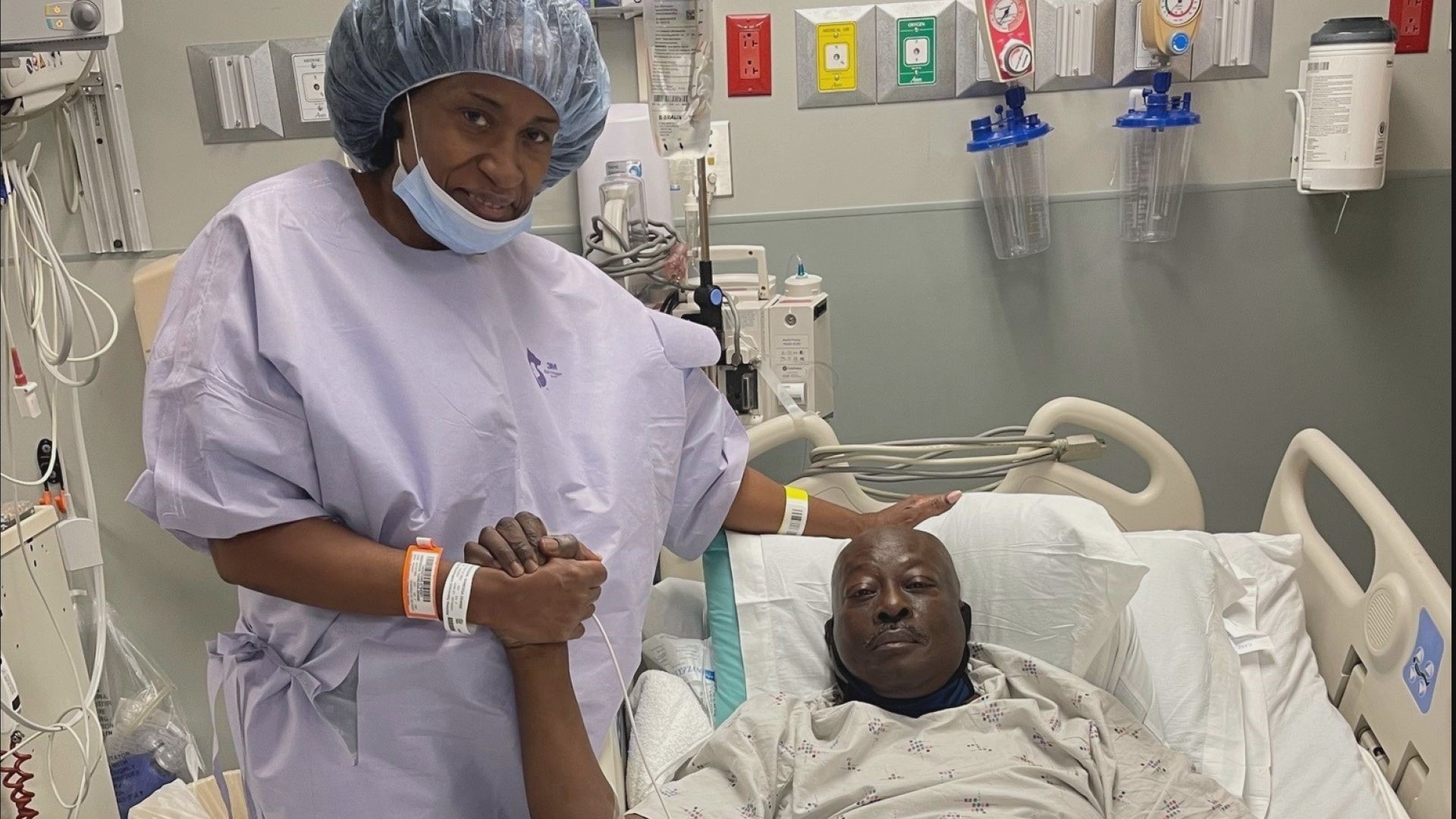WASHINGTON — 100,000. That's how many men, women, and children are on the wait list for an organ transplant in the U.S. Every day, 20 people die – just waiting.
For African Americans, the numbers are more disproportionate – especially for those in need of a kidney transplant.
Here in DC, there's an institution leading an innovative program to increase awareness about organ donation in the African American community.
"I started modeling for Woodies Department Store," Audrick Payne said.
A chance encounter with a photographer in high school led him to those modeling gigs. He was athletic, agile, loved playing tennis, basketball and competing in martial arts.
But by 2014, Payne began to experience swelling throughout his body, shortness of breath and limited mobility.
"So, I drove myself to GW emergency room," he said.
He was immediately admitted into the hospital. And after a week of tests, he said, "The diagnosis was End Stage Renal Failure."
Audrick's kidneys could no longer filter the toxins and excess fluids from his body.
"That means you can die at any point," he said.
The at-home-dialysis became his lifeline. When doctors approved him for the United Network For Organ Sharing, he was number 180 out of 100,000 on the national wait list.
But, even being on that list was a life-or-death gamble.
"It's very common that our patients, once we put them on the list, and they remain on the dialysis, that there is a steady decline in their health," said his physician and transplant surgeon Dr. J. Keith Melancon.


"He would have been waiting for a deceased donor kidney, and that can take 5 to 7 to 8 years in this area to receive a deceased donor kidney transplant. So, most of the people that are placed on the list waiting for a deceased donor organ are going to die," he said.
Those deaths, Dr. Melancon said, occur because there are more people in need of organ transplants than there are donors. According to the doctor, 100,000 people are on the national organ donor wait list, and approximately, 20,000 will receive a transplant.
And, he agrees with experts who say the UNOS transplant system needs an overhaul.
"So, there are 80,000 people still on that list, after 20,000 transplants are done, they're going to wait until the next year. But, then, there are another 20,000 people that are going to be added to the list," Dr. J. Keith Melancon said.
Since 2015, the director of the Transplant Institute at George Washington Hospital has been on a mission to reduce patients wait time and save lives through living organ transplant donations.
He said, "There's a huge benefit when you get a live donor compared to a deceased donor. You take the kidney out of the donor and it goes immediately into the recipient. So the kidney is without blood flow for less than an hour, and it starts working immediately. So, there's very little damage to the kidney."
Dr. Melancon said that he and his team at the George Washington Transplant Institute "are focusing on trying to educate the community, trying to get people to understand, 'hey, you can do this! You can be the change agent!"
Vanessa Anderson was that change agent for a sickly Audrick Payne after being on the wait list for four years.
Anderson said while she was talking to him, a higher power was speaking to her.
"Something came up and said, 'give him a kidney', and I was like, God, you talking to me! It just came out, and I told him that I would give him a kidney," said Anderson.
She received a thorough a battery of tests and exams on her lungs, heart, kidneys and vessels, and met with a psychiatrists and dietitian to make sure that she was in good health to be a donor.
Audrick Payne's health insurance company paid for all of her medical expenses.
"After nine months, she called one day and said I just want you to know that I'm a 100 percent match," Audrick said.
"It was a blessing for him and a blessing for me," said Anderson.
Audrick said he gets teary every time he thinks of how, "She saved my life."


"We go in talking about live donor transplants with our recipients from the first day that we meet them," Dr. J. Keith Melancon said.
He adds, "Your average African American has four times the rate of kidney disease compared to a white person. So, we have the most need."
And, to increase awareness of live organ donation in the Black community, the doctor teams with transplant recipients and donors to record podcasts about their journey, all with the goal to inspire others to become live organ donors.
"It's not just the fact that you're saving someone's life, you become an exemplar of what people can do to save other people's lives," Dr. J. Keith Melancon said.
The transplant surgeon said that you can live with one kidney. And that there's a tremendous pay-it-forward benefit to being a live organ donor.
If a donor is not a perfect match with one patient, but is with another, that person will receive the organ. And, a different donor match will be given to the recipient that wasn't a match with the first donor.
So, giving the gift of life goes on and on.
>Watch the extended interview below or on WUSA9+

